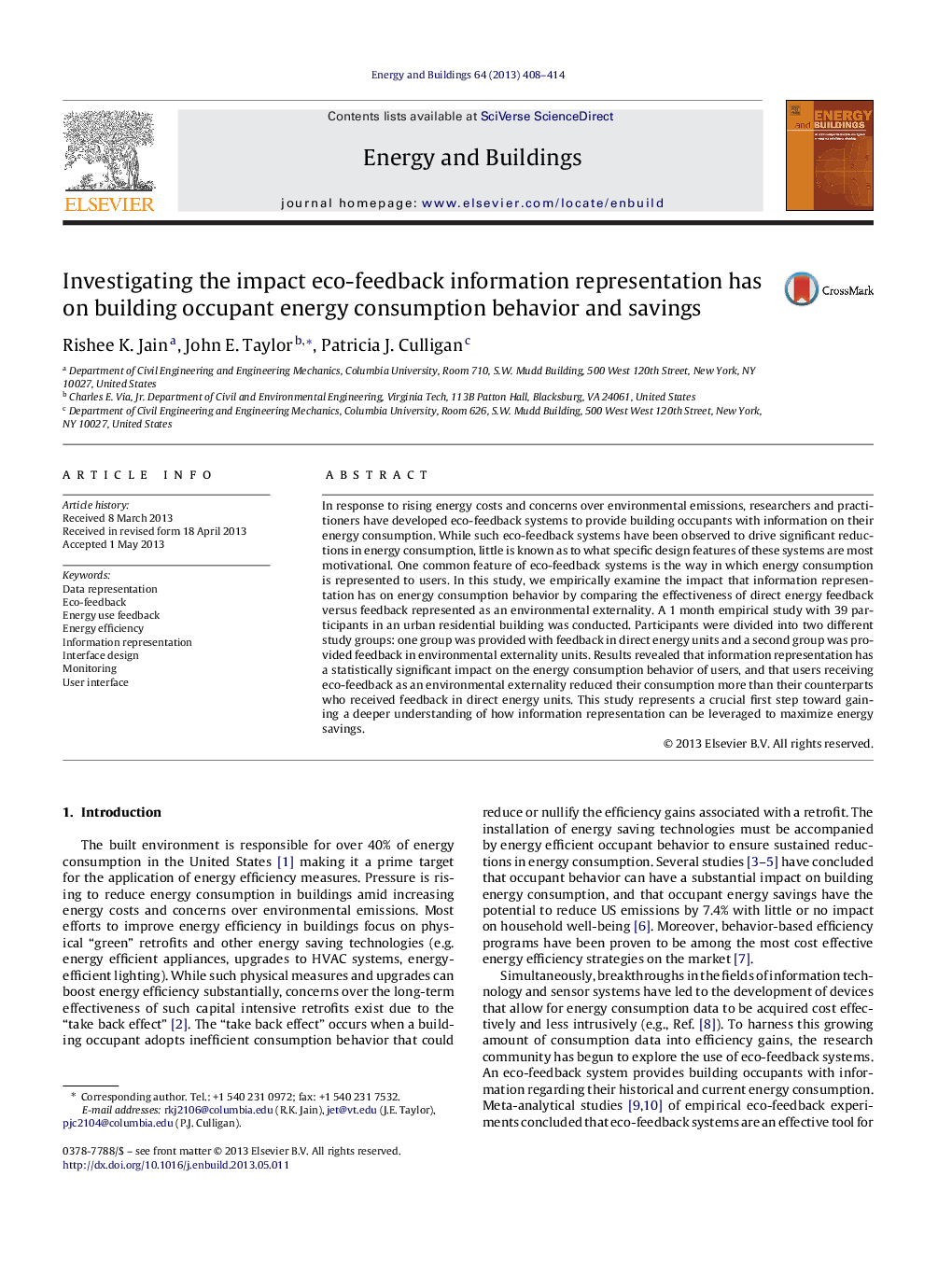| کد مقاله | کد نشریه | سال انتشار | مقاله انگلیسی | نسخه تمام متن |
|---|---|---|---|---|
| 263417 | 504074 | 2013 | 7 صفحه PDF | دانلود رایگان |

• We examine the impact information representation has on energy consumption.
• Users were given feedback in kWh or the environmental externality CO2 emissions.
• Information representation is shown to have a significant impact on consumption.
• Results revealed users provided CO2 emissions saved more than users provided kWh.
• Conclusions enable future research in eco-feedback information representation.
In response to rising energy costs and concerns over environmental emissions, researchers and practitioners have developed eco-feedback systems to provide building occupants with information on their energy consumption. While such eco-feedback systems have been observed to drive significant reductions in energy consumption, little is known as to what specific design features of these systems are most motivational. One common feature of eco-feedback systems is the way in which energy consumption is represented to users. In this study, we empirically examine the impact that information representation has on energy consumption behavior by comparing the effectiveness of direct energy feedback versus feedback represented as an environmental externality. A 1 month empirical study with 39 participants in an urban residential building was conducted. Participants were divided into two different study groups: one group was provided with feedback in direct energy units and a second group was provided feedback in environmental externality units. Results revealed that information representation has a statistically significant impact on the energy consumption behavior of users, and that users receiving eco-feedback as an environmental externality reduced their consumption more than their counterparts who received feedback in direct energy units. This study represents a crucial first step toward gaining a deeper understanding of how information representation can be leveraged to maximize energy savings.
Figure optionsDownload as PowerPoint slide
Journal: Energy and Buildings - Volume 64, September 2013, Pages 408–414